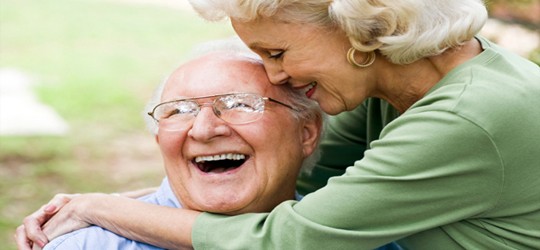Home & community-based services (HCBS) include a range of personal, support, and health services provided to you in your home or community to help you stay at home and live as independently as possible. These services are often provided by family caregivers, but can also be provided by a variety of home- and community-based providers.
Home & community-based services include:
Adult Day Service Programs
Adult Day Service (ADS) Programs provide social interaction and a safe place to go while your family caregivers are at work. ADS programs may also provide a variety of health, social, and other support services in a protective setting. Most operate during normal business hours. Some have evening, night, and weekend hours, but these programs do not provide 24-hour care.
There are two kinds of ADS programs: the health model and the social model. The health model provides some health care services onsite. The social model provides social services, such as exercise classes or arts and crafts, onsite. Some programs offer both types of services.
Case managers or geriatric care managers
Case managers or geriatric care managers are typically nurses or social workers who can help you choose and manage long-term care services, develop a plan of care, and monitor your long-term care needs over time.
Emergency response systems
Emergency response systems provide a signaling device you can wear at home. If there is a medical or other emergency, you press a button to alert an operator who contacts emergency personnel. This can be especially useful if you live alone.
Friendly visitor and companion services
Friendly visitor and companion services can provide you with visitors who regularly spend time with individuals who are frail or living alone so that they don’t become isolated.
Home health care and home care
Home health care services typically offer skilled services such as the nursing and physical therapy that your doctor orders. Generally these services are limited to 60 or fewer days. Home care services are often limited to personal care assistance services such as bathing and dressing, and may include homemaker services such as meal preparation or household chores.
Homemaker or chore services
Homemaker or chore services help with your general household activities such as meal preparation and routine household care, and sometimes heavier household chores such as washing floors or shoveling snow.
Home modifications
Home modifications help you to continue living independently in your home. Some examples include building a wheelchair ramp or installing handrails in a shower or tub, modifications that are typically done by a contractor.
Meals programs
Meals programs, such as Meals on Wheels, deliver meals directly to your home or provide communal meals.
Respite care
Respite care gives your unpaid caregivers time off from their responsibilities. Respite care is offered in the home, adult day centers, and nursing homes.
Senior centers
Senior centers provide nutritional, recreational, social, and educational services. They provide comprehensive information and referrals to help you find the care and services you need.
Transportation services
Transportation services provide transportation to medical appointments and shopping centers. They can transport you to community services and resource centers.
Villages
Villages are private membership programs in communities which provide or arrange assistance with activities such as basic home health, lawn and garden care, transportation, and grocery shopping.
From the U.S. Department of Health and Human Services National Clearinghouse for Long-Term Care Information website.

